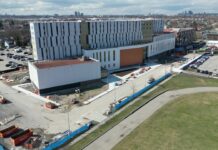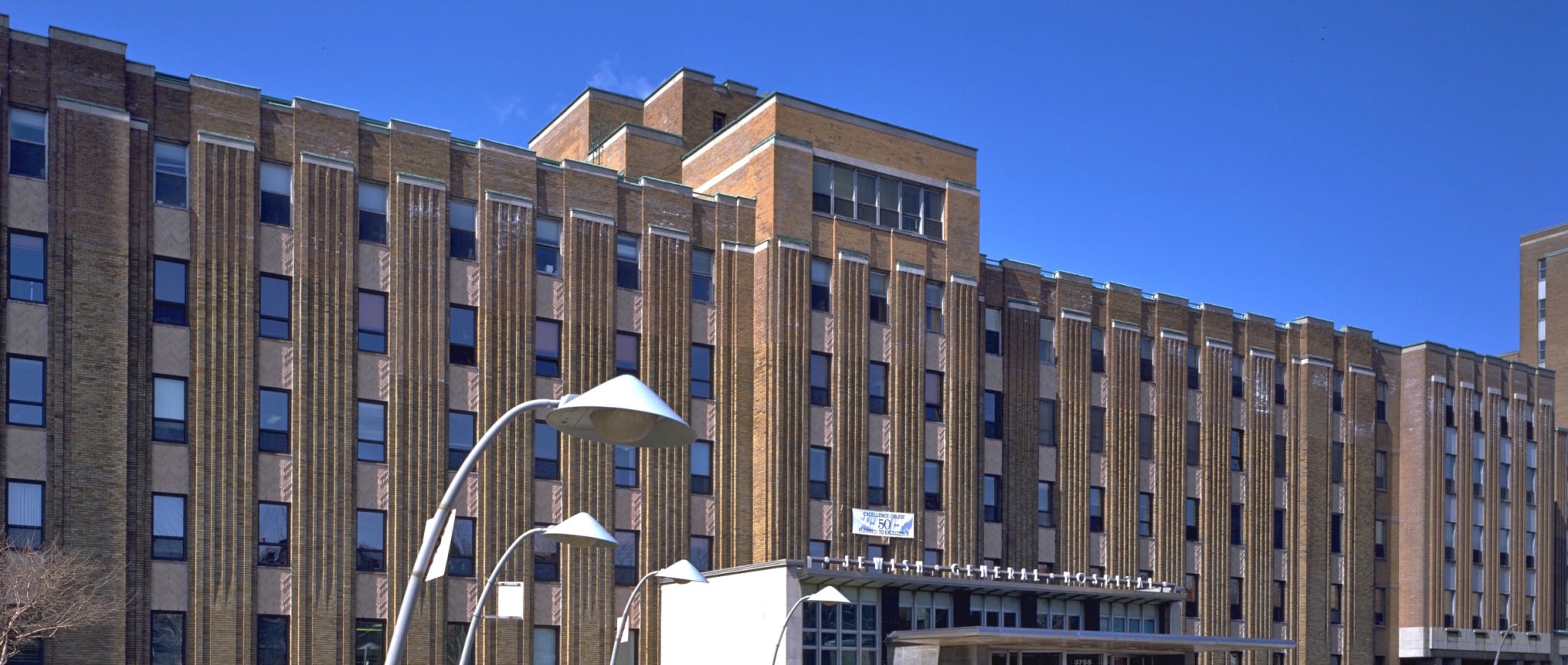Minister of Health and Social Services Gaétan Barrette has confirmed that the major redevelopment project of the Jewish General Hospital is included in the Plan québécois des infrastructures (PQI) as a “project under study”.
“The fourth phase of this project is the essential complement to optimize the use and benefits of building the new pavilion for clients,” Barrette said. “With this ambitious project, we wanted to consolidate one of the major centers of health services in Montreal and respond to changing clinical needs. With this announcement, we are reaffirming our commitment to providing the Jewish General Hospital with the means to go even further in the areas of specialized and super-specialized care, research, and the training of emerging health professionals.”
The redevelopment of 35,000 m2 of existing space is the fourth phase of the extensive construction project for the Critical Care Pavilion, also known as Pavilion K. In order to increase the efficiency and safety of the services and care provided, this fourth phase consists of about forty distinct projects spread over several sectors, including pharmacy, medical imaging, hemodialysis, and physiotherapy. The shared rooms of three or four bed care units would also become single or double occupancy rooms.
The first phase consisted mainly of the construction of the new emergency area, the first two floors of the basilar and the underground parking. In addition to the emergency, the Critical Care Pavilion includes operating theaters, intensive care units, the coronary unit, the cardiac care unit, the birth center, the neonatology unit, the day hospital. and care units. Phases II and III of this vast project included the construction of the last three floors of the basilaire and the seven-storey tower erected above.
For Phase IV, the work will increase the percentage of private rooms in the hospital from 18 per cent to 70 per cent, which will improve fluidity despite the need to place patients in isolation. The hemodialysis chairs will be grouped in the same place, and the expansion of the pharmacy will reduce the risk of contamination.
The overall cost of the Phase IV project is currently estimated at $200 million and the facility plans to spend $25 million.















